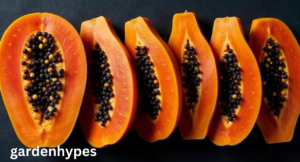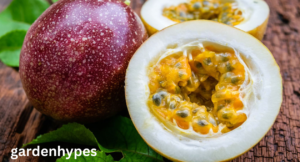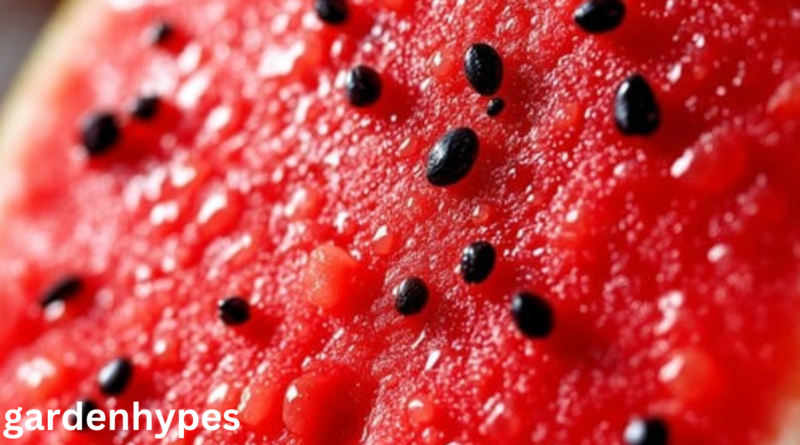Fruits With Black Seeds Types Benefits & Uses
Introduction to Fruits With Black Seeds
When you think of fruits, what usually comes to mind? Sweetness, juiciness, and refreshing flavors. But beyond the taste, fruits often come with tiny treasures hidden inside—the seeds. Among these, fruits with black seeds stand out as some of the most fascinating. They add a distinct look, hint at nutritional benefits, and sometimes carry surprising uses. Have you ever wondered why some fruits, like watermelon or kiwi, have those little Fruits with black seeds dots? Or why tropical delights such as papaya or custard apple hold glossy, shiny seeds?
click in link Teal Fruits
Black seeds in fruits are not just there for decoration. They serve as nature’s way of ensuring the plant’s survival. Every seed is a potential new plant, a carrier of life. But beyond their role in reproduction, many black seeds are packed with nutrients, oils, and compounds beneficial to human health. Some seeds are edible and even considered superfoods, while others are best avoided due to toxicity.
Culturally, black seeds also carry symbolism. In some traditions, they are associated with fertility and abundance. In others, they’re linked to protection or healing. This adds another layer of intrigue to fruits with black seeds.
In this article, we’ll explore a variety of fruits that contain black seeds, uncover their health benefits, dive into how they’re consumed, and discover some fun facts you may not know. From tropical treasures to everyday snacks, you’ll never look at these fruits the same way again.
Watermelon – The Summer Favorite
Watermelon is arguably the most famous fruit with black seeds. Whether you enjoy it sliced up on a hot day or blended into a juice, you’ve definitely noticed those small, oval-shaped black seeds scattered across the pink flesh. Many people spit them out, while others have no problem chewing them. But did you know those black seeds are packed with nutrition?
Watermelon seeds are rich in magnesium, iron, and zinc. They also provide healthy fats and plant-based protein. When roasted, they make a crunchy, nutty snack that rivals sunflower seeds. In some cultures, roasted watermelon seeds are even sold as street food.
Then there’s the myth everyone has heard at least once: if you swallow a watermelon seed, a watermelon will grow inside your stomach. Of course, that’s just a childhood scare tactic, but it highlights how memorable these seeds are. In reality, if you swallow them, they just pass through your digestive system unless you chew them. Only then do you get the full benefit of their nutrients.
Interestingly, seedless watermelons also exist. These are developed through plant breeding and usually contain tiny white seed coats instead of full black seeds. While they’re convenient, they lack the nutritional punch of the black seeds. So, the next time you’re enjoying a watermelon, think twice before discarding the seeds—you might be throwing away a natural powerhouse.
Papaya – The Tropical Fruit With Healing Seeds
Papaya is another tropical gem loaded with glossy black seeds that sit in the hollow center of the fruit. At first glance, these seeds might seem like waste, but in many cultures, they’re considered medicinal. The seeds are peppery in taste, resembling black peppercorns, and they pack impressive health benefits.
Papaya seeds are known for their antimicrobial properties. Traditionally, they’ve been used to treat intestinal worms and parasites. Some studies suggest they may support liver health and aid digestion. They’re also a natural detoxifying agent, helping to cleanse the body of harmful substances.
However, papaya seeds should be consumed with caution. Eating too many at once may cause stomach irritation, and for pregnant women, they are not recommended. The best way to enjoy them is in small quantities—sprinkled over salads, blended into smoothies, or dried and used as a spice alternative.
What makes papaya seeds fascinating is their balance between being beneficial yet slightly bitter. While the orange flesh of papaya is sweet and refreshing, the seeds add a spicy kick that surprises first-timers. This dual nature of papaya—sweet and spicy—makes it a truly unique fruit among those with black seeds.
click in link Teal Fruits

Guava – Sweet Flesh and Peppery Seeds
Guava is a tropical delight loved for its sweet, aromatic flavor and high vitamin C content. But when you bite into a guava, you can’t miss its small, hard seeds—often dark or black in color—embedded throughout the fruit’s flesh. Unlike watermelon or papaya, guava seeds are tough and crunchy, which is why some people prefer to blend them into juices or smoothies rather than chew them directly.
Nutritionally, guava seeds contribute fiber, which helps digestion, and they also contain trace amounts of antioxidants. In fact, many traditional remedies use guava seed extracts for skin health and digestion support. The seeds can be crushed and used in scrubs, offering a natural way to exfoliate.
One interesting aspect of guava seeds is their versatility. You can chew them raw if you like the crunch, or you can soften them by blending into drinks. In some regions, guava seed oil is extracted and used for cosmetic purposes, especially for skin hydration.
Eating guava with its seeds is also part of the charm. Unlike fruits where seeds are discarded, guava is typically consumed whole—flesh, seeds, and even the skin if it’s ripe and soft enough. This makes it one of the most “zero waste” fruits out there.
Guava seeds may not be as famous as papaya or watermelon seeds, but they play a role in making guava one of the healthiest fruits available.
Passion Fruit – Exotic Taste, Crunchy Seeds
Passion fruit is a small, round fruit with a wrinkled purple or yellow skin and a juicy, seed-filled interior. The seeds of passion fruit are black, crunchy, and surrounded by a sweet-tart pulp that bursts with flavor. Unlike guava or papaya, passion fruit seeds are an essential part of the eating experience—you can’t enjoy the fruit without them.
These seeds are edible and highly nutritious. They’re rich in dietary fiber, healthy fats, and antioxidants. The crunch of the seeds combined with the juicy pulp creates a unique texture that makes passion fruit stand out in desserts, smoothies, and cocktails.
Passion fruit seeds are also versatile in culinary applications. They can be spooned over yogurt, blended into juices, or used as a topping for cheesecakes and ice creams. Their tangy flavor complements both sweet and savory dishes, making them a favorite among chefs.
Health-wise, passion fruit seeds support digestion, boost immunity, and provide a dose of heart-friendly compounds. They’re also rich in vitamin A and vitamin C, making them great for skin and eye health.

What’s truly special about passion fruit is the way the seeds and pulp work together. You can’t separate one from the other without losing the essence of the fruit. It’s nature’s way of reminding us that sometimes the best things come in small, crunchy packages.
click in link Teal Fruits
FAQs
Q1: Are all black seeds in fruits edible?
Not all black seeds are safe to eat. While seeds from fruits like watermelon, papaya, and passion fruit are edible and even nutritious, some seeds such as those in custard apple or sapodilla should not be consumed raw because they may contain toxic compounds. It’s always best to check before eating.
Q2: Do black seeds in fruits provide any health benefits?
Yes! Many black seeds are rich in dietary fiber, antioxidants, and healthy fats. For example, watermelon seeds are high in magnesium and zinc, papaya seeds have antimicrobial properties, and passion fruit seeds provide beneficial fatty acids.
Q3: Can you grow new plants from black seeds found in fruits?
In many cases, yes. If you plant seeds from fruits like watermelon, papaya, or guava in suitable conditions, they can sprout into new plants. However, some hybrid fruits (like seedless watermelons) won’t produce the same results.
Q4: Which fruit with black seeds is best for smoothies?
Passion fruit, dragon fruit, and kiwi are great options for smoothies because their seeds blend well and add texture without being overly hard. Guava can also be used, though its seeds are tougher.
Q5: Do black seeds change the taste of fruits?
The seeds themselves usually don’t affect the sweetness of the fruit, but they do add texture. For example, passion fruit seeds bring a crunchy bite, while papaya seeds add a peppery flavor if eaten.
